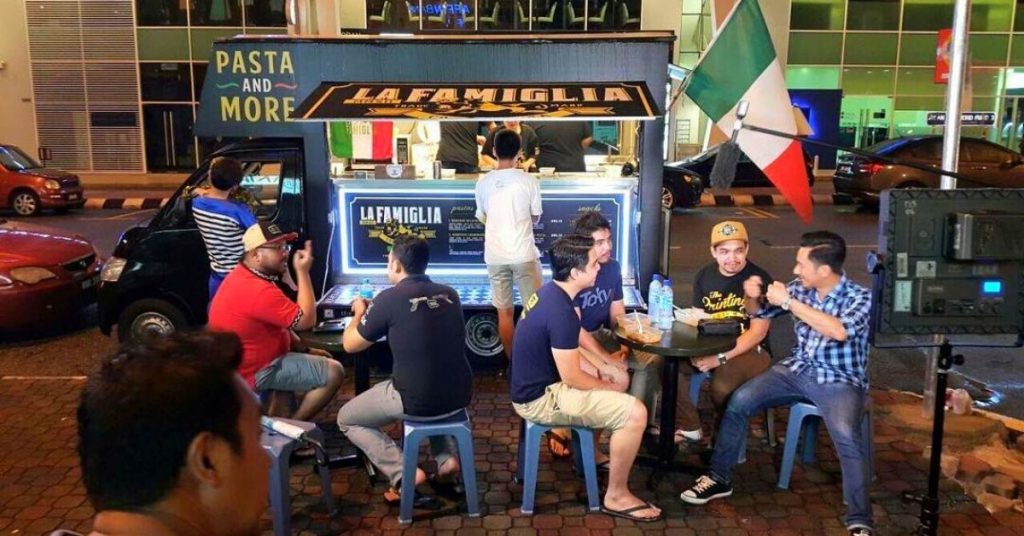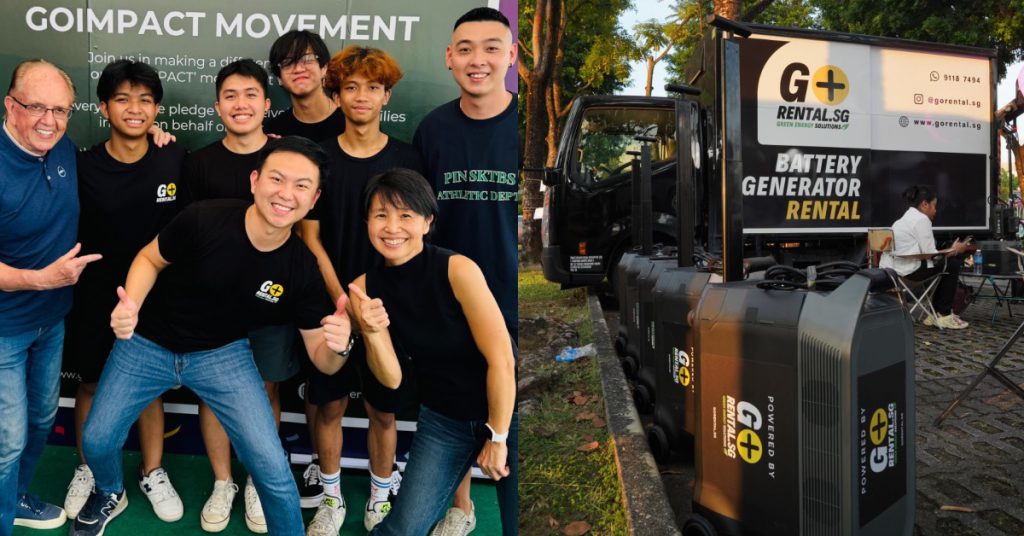Similar to F&Bs that have suffered tremendous dips since MCO, food trucks have the added strain identical to those in the events industry.
The main sales of food trucks come from foot traffic and catering. Since gatherings and events were halted, food trucks had to pivot to stay afloat.
Vulnerable to struggles faced by both F&B and events industries, we reached out to 5 food trucks to see how the pandemic has affected their businesses.
Being Mobile Doesn’t Mean Moving Away From Problems

Pre-pandemic, Burger Giler mostly capitalised on event caterings while its actual food truck only operated for 2 days a week. This model earnt them up to RM15k on a good month with 20-60 events per year.
Since the MCO, its co-founder Daniel told Vulcan Post that the truck’s monthly sales have fallen to RM5k. As for events, they only participated in 3 for the entirety of 2020.
First Order, who mostly relied on foot traffic at food truck parks like Tapak, shared that it had issues registering on delivery platforms. Their issue was that they didn’t have a physical storefront.
For Curbside Cantina, it wasn’t about getting on delivery platforms since they were an early adopter, even when UberEats was around. Their struggle was in employing a network of labour that became scarce.
It was difficult to produce the volume required to stay profitable from their trucks that would relocate to various neighbourhoods periodically.
Despite being mobile, most food trucks don’t often move around to capitalise off different locations. One factor is that operations are limited by permits since they’re basically taking up a parking spot for a few hours a day.
Staying in one spot also builds a regular customer base, as in the case of LaFamiglia, which operates near offices to attract white-collar lunch crowds. But this reliance led to an 80-90% drop in walk-in sales during MCO.
Besides, Malaysians also want predictability and convenience without having to hunt for the desired truck.

Nizar, who founded Cowboys Food Truck clarified, “People generally don’t like to play guessing games when it comes to finding places to eat. If you’re going to be at a particular spot at a particular time, you better make sure you’re there the same time/day the following week.”
Unfortunately, Cowboys had to move their operations from TTDI—where their customer base was—to their central kitchen in SS18, Subang. That meant they had to build a new customer base from scratch, purely through deliveries too.
Coping With Commission Fees
As it no longer made sense to keep trucks operating on the streets, moving deliveries to central kitchens was the most cost-effective option. It’s a strategy used by Burger Giler and LaFamiglia as well since they already had the hubs from their catering services.
However, this came with high commission rates between 30%-40% on GrabFood and Foodpanda. Unable to cope, Burger Giler stopped using third-party apps and fulfilled deliveries themselves, which First Order did too.

Cowboys and Curbside Cantina moved to Beepit instead, as it had lower commissions at 12%. The sacrifice came with the trucks having to step up their social media presence, as Beep had a lower customer base browsing the app.
“Personally, it was one of those ‘duh’ moments but took me a while to realise that good food pictures help!” exclaimed Cowboy’s Nizar. Posting daily IG Stories and interacting with followers paid off; the brand saw an increase in orders via Whatsapp.
The only brand that stuck with the 30% fees was LaFamiglia, who had to mark up the prices of their food to sustain such margins.
In the end though, all 5 trucks have actually reported decent results from relying on deliveries. Over 60% of their orders now come from these platforms, with LaFamiglia even exceeding their average pre-pandemic revenue.
All this, however, was achievable because they’ve quickly adapted by cutting down on their part-time labourers and negotiating kitchen rentals. Daniel and Nizar have also taken huge pay cuts, the latter of whom stated he didn’t even pay himself a single cent in 2020.
But as the country starts to recover from the vaccine roll out, these founders are also planning for better days.
Getting Back On The Road
Apart from the demands of deliveries and cash flow issues, there’s no denying the MCO has flipped the idea of food trucks on its head. Regardless, these founders are keeping to modest plans for when the pandemic and economy returns to normal.
For example, Burger Giler will take small steps by renewing their licenses and road taxes to get their trucks up and running again. LaFamiglia is planning to push out promotional packages to re-attract their pre-pandemic lunch crowds.

On top of running their truck and catering for events, Cowboys will be sharing a space with an SS17 Ramen restaurant to accommodate dine-ins. To be more efficient with deliveries, Curbside Cantina will be moving to a central kitchen space in PJ.
First Order will focus on maintaining its taste to attract customers new and old to its offerings. Its founder, Kamal, is also bravely venturing into the soft-serve ice cream business to target and widen its customer base.
- You can read about other MCO related topics here.
Featured Image Credit: LaFamiglia











